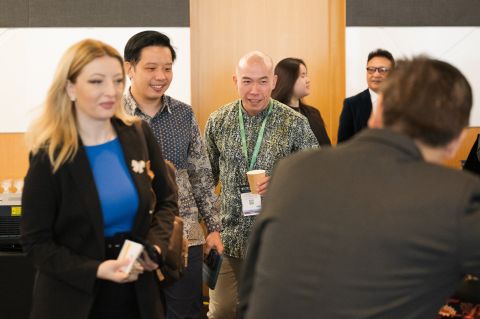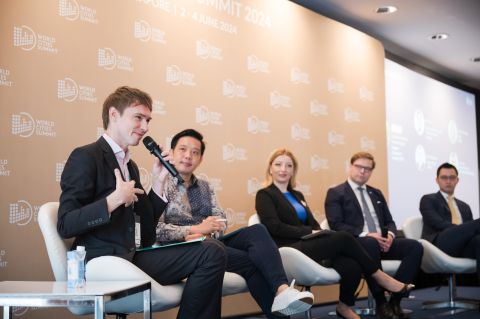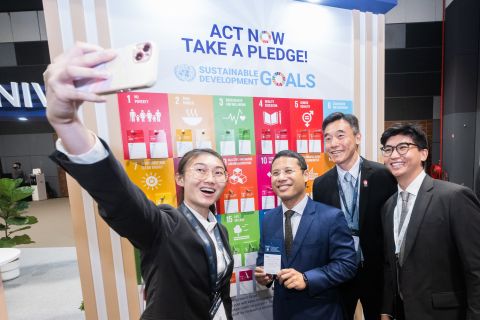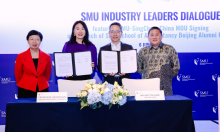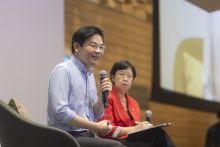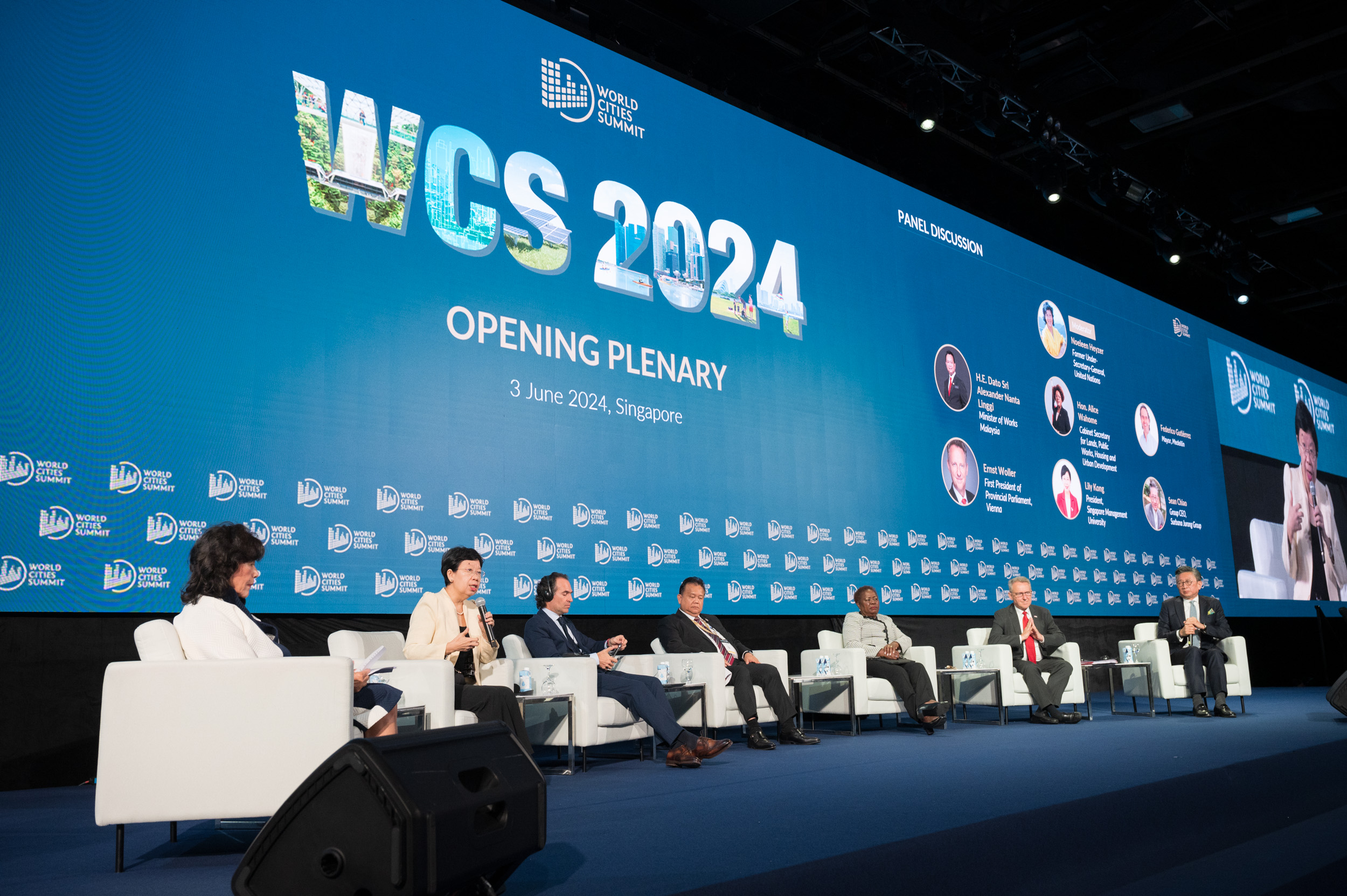
Urban cities face myriad challenges: surging populations, ageing demographics, the looming threat of climate change.
Research-based insights are crucial in helping leaders make informed decisions especially with regards to city planning and policymaking. However, given the scale of these issues and how connected all urban cities are, no one city can achieve this in isolation.
This was the backdrop to the ninth World Cities Summit (WCS) 2024, which was themed “Liveable and Sustainable Cities: Rejuvenate, Reinvent, Reimagine”.
Held from 2 to 4 June 2024 at the Suntec Singapore Convention & Exhibition Centre, the event explored the opportunities and projected ways to achieve smart, resilient and regenerative cities into the future to an audience of government leaders, industry leaders and academics.
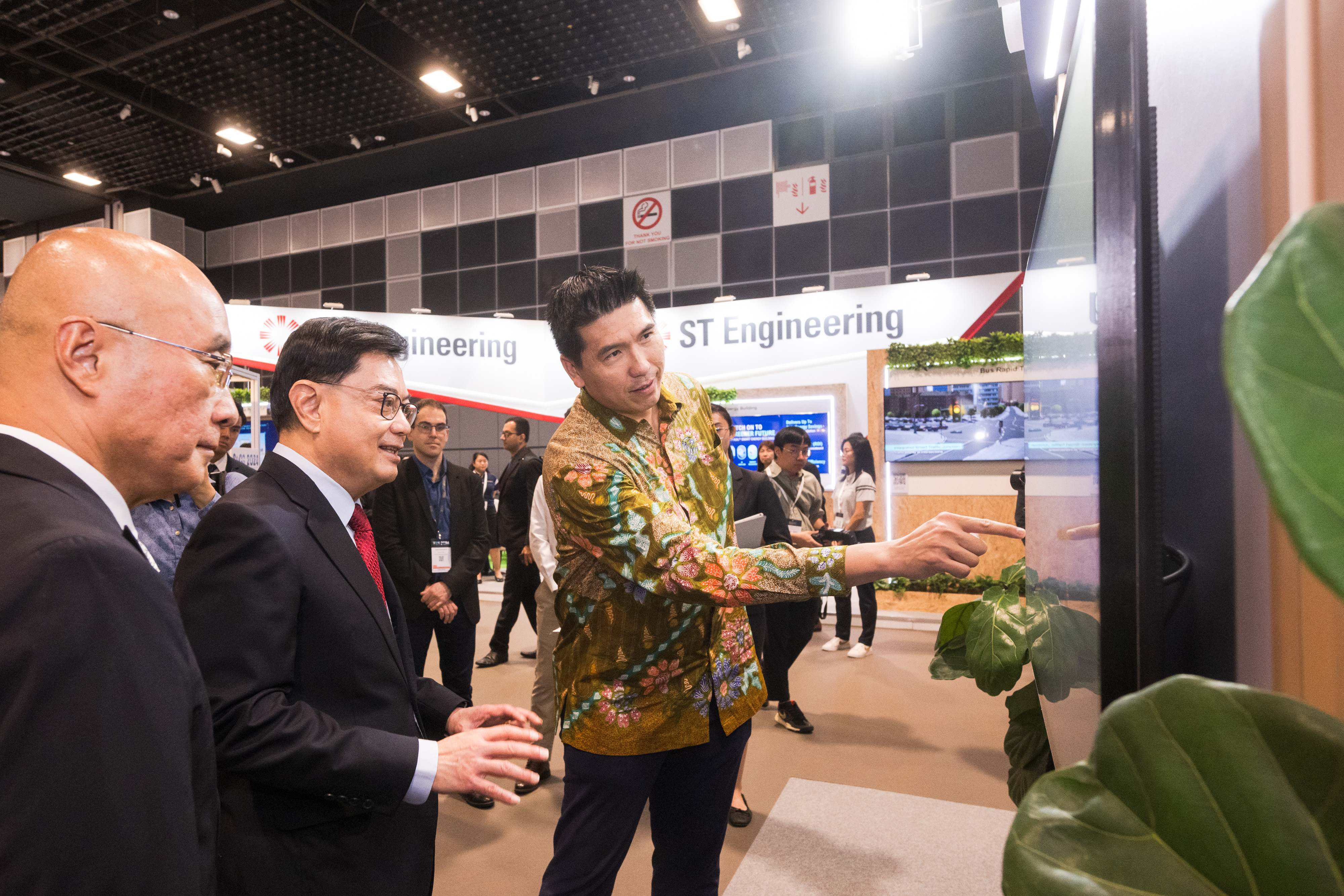
As a Patron sponsor of the event, SMU’s leaders and faculty members showcased the University’s multi-disciplinary and inter-disciplinary research, thought leadership and entrepreneurship related to cities and sustainability. SMU's Institute of Innovation and Entrepreneurship (IIE) helped organise the Science of Cities Symposium, proposing a workshop for increased interaction, and crafted themes for panel talks and workshops to highlight innovation and technology's impact on building resilient, inclusive communities.
During the event, SMU President Professor Lily Kong shared her insights on education, leadership as well as the sociological perspectives needed to truly understand and solve the world’s most pressing urban challenges.
The importance of diverse perspectives and opportunities
Prof Kong delivered the opening address for the Science of Cities Symposium, which focused on research-based insights into building climate adaptive and people-centric cities. She discussed the evolving nature of cities and their complex systems: individuals, families, communities and more, all of which add layers of complexity to governance, decision-making and change making.
“To understand how a city works, we must thus understand the behaviour of its inhabitants and the nature of their interactions, giving attention to how collective behaviour is manifested and changes over time,” she explained.
Prof Kong was also a panellist at the WCS Opening Plenary, titled “Liveable & Sustainable Cities: Rejuvenation, Reinvention, Reimagine”.
In her presentation, she highlighted Singapore’s unique advantages and challenges as a city state, but emphasised groupthink as a potential pitfall for the country. Given Singapore’s compact size, there is a risk of a lack in the diversity of perspectives – something that Prof Kong reiterates is essential for long-term cohesive city planning.
“It is therefore critical for our leaders to proactively seek diversity of thought and take an integrative approach to solution making…and also that we continue offering interdisciplinary education programmes such as those offered by SMU’s College of Integrative Studies to young people.
“For future city leaders, interdisciplinary learning is crucial to break down silos in technical, technological, sociological, and humanistic domains, fostering holistic thinking," Prof Kong explained.
SMU Professor of Urban Climate Winston Chow, who is also the co-chair of the Intergovernmental Panel on Climate Change (IPCC’s) Working Group II, also contributed his expertise as a panellist at Resilient & Regenerative Cities Plenary 2, which discussed how cities accelerate towards urban regeneration in harmony with nature.
Professor of Geography Orlando Woods and Assistant Professor of Urban Studies (Education) Aidan Wong were both panel moderators during the event, helping to ensure that discussions were insightful and provided diverse perspectives to the audience.
Besides the involvement of SMU faculty and leaders, SMU also showcased its research, some of its alumni’s exciting and innovative startups, as well as the professional development programmes in the areas of urban challenges and sustainability.

